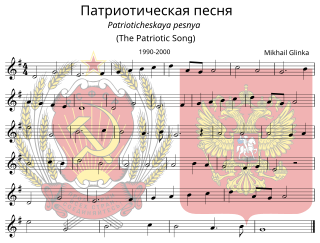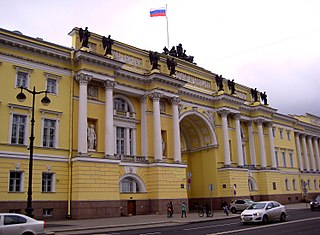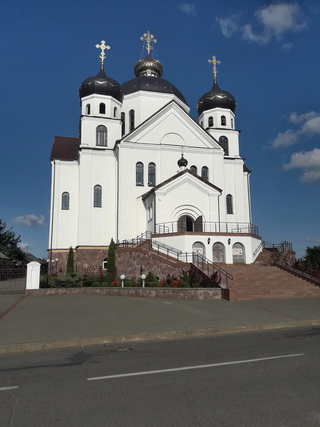| |||||
| Decades: | |||||
|---|---|---|---|---|---|
| See also: | |||||
Events from the year 1885 in Russia .
| |||||
| Decades: | |||||
|---|---|---|---|---|---|
| See also: | |||||
Events from the year 1885 in Russia .
| | This section needs expansion. You can help by adding to it. (July 2016) |
| | This section needs expansion. You can help by adding to it. (July 2016) |
| | This section needs expansion. You can help by adding to it. (July 2016) |

Alexander Joseph, known as Alexander of Battenberg, was the first prince (knyaz) of the Principality of Bulgaria from 1879 until his abdication in 1886. The Bulgarian Grand National Assembly elected him as Prince of autonomous Bulgaria, in 1879. He dissolved the assembly in 1880 and suspended the Constitution in 1881, considering it too liberal. He restored the Constitution in 1883, leading to open conflict with Russia that made him popular in Bulgaria. Unification with Eastern Rumelia was achieved and recognised by the powers in 1885. A coup carried out by pro-Russian Bulgarian Army officers forced him to abdicate in September 1886. He later became a general in the Austrian army.

Paul Gustave Louis Christophe Doré was a French printmaker, illustrator, painter, comics artist, caricaturist, and sculptor. He is best known for his prolific output of wood-engravings illustrating classic literature, especially those for the Vulgate Bible and Dante's Divine Comedy. These achieved great international success, and he became renowned for printmaking, although his role was normally as the designer only; at the height of his career some 40 block-cutters were employed to cut his drawings onto the wooden printing blocks, usually also signing the image.

"The Patriotic Song" was the national anthem of Russia from 1991 to 2000. It was previously the regional anthem of the Russian Soviet Federative Socialist Republic from 1990 until 1991, when it transformed into the Russian Federation after the dissolution of the Soviet Union. Unlike most national anthems, it had no official lyrics.

The Governorate of Estonia, also known as the Governorate of Esthonia was a governorate in the Baltic region, along with the Livonian and Courland Governorates. It was a part of the Imperial Russian administration (guberniya), which is located in modern-day northern Estonia and some islands in the West Estonian archipelago, including the islands of Hiiumaa and Vormsi. The Governorate was established in 1796 when Paul I's reform abolished the Viceroyalty (namestnik). Previously, the Reval Governorate existed under Peter I's reign from the Treaty of Nystad, which ceded territory from Sweden to the newly established Russian Empire, until its inexistence in 1783.

The Century Magazine was an illustrated monthly magazine first published in the United States in 1881 by The Century Company of New York City, which had been bought in that year by Roswell Smith and renamed by him after the Century Association. It was the successor of Scribner's Monthly Magazine. It was merged into The Forum in 1930.

The Serbo-Bulgarian War or the Serbian–Bulgarian War was a war between the Kingdom of Serbia and Principality of Bulgaria that erupted on 14 November [O.S. 2 November] 1885 and lasted until 28 November [O.S. 16 November] 1885. Despite Bulgaria being a vassal state of the Ottoman Empire, the Ottomans did not intervene in the war. Serbia took the initiative in starting the war but was decisively defeated. Austria-Hungary demanded for Bulgaria to stop its invasion, and a truce resulted. The final peace was signed on 3 March [O.S. 19 February] 1886 in Bucharest. The old boundaries were not changed. As a result of the war, European powers acknowledged the act of Unification of Bulgaria which happened on 18 September [O.S. 6 September] 1885.

The Battle of Slivnitsa was a victory of the Bulgarian army over the Serbians on 17–19 November 1885 in the Serbo-Bulgarian War. It solidified the unification between the Kingdom of Bulgaria and Eastern Rumelia.

The Panjdeh Incident was an armed engagement between the Emirate of Afghanistan and the Russian Empire in 1885 that led to a diplomatic crisis between Great Britain and the Russian Empire regarding the Russian expansion south-eastwards towards the Emirate of Afghanistan and the British Raj (India). After nearly completing the Russian conquest of Central Asia, the Russians captured an Afghan border fort, threatening British interests in the area. Seeing this as a threat to India, Britain prepared for war but both sides backed down and the matter was settled diplomatically. The incident halted further Russian expansion in Asia, except for the Pamir Mountains, and resulted in the definition of the north-western border of Afghanistan.

The Governing Senate was the highest legislative, judicial, and executive body subordinate to the Russian emperors, instituted by Peter the Great to replace the Boyar Duma and lasted until the very end of the Russian Empire. It was chaired by the Procurator General, who served as the link between the sovereign and the Senate; he acted, in the emperor's own words, as "the sovereign's eye".

The Transcaspian Oblast, or simply Transcaspia, was an oblast of the Russian Empire and early Soviet Russia to the east of the Caspian Sea during the second half of the 19th century until 1924.

The Unification of Bulgaria was the act of unification of the Principality of Bulgaria and the province of Eastern Rumelia in the autumn of 1885. It was co-ordinated by the Bulgarian Secret Central Revolutionary Committee (BSCRC). Both had been parts of the Ottoman Empire, but the principality had functioned de facto independently whilst the Rumelian province was autonomous and had an Ottoman presence. The unification was accomplished after revolts in Eastern Rumelian towns, followed by a coup on 18 September [O.S. 6 September] 1885 supported by the Bulgarian Prince Alexander I. The BSCRC, formed by Zahari Stoyanov, began actively popularizing the idea of unification by means of the press and public demonstrations in the spring of 1885.

Eduard Gustav Freiherr von Toll, better known in Russia as Eduard Vasilyevich Toll and often referred to as Baron von Toll, was a Russian geologist and Arctic explorer. He is most notable for leading the Russian polar expedition of 1900–1902 in search of the legendary Sannikov Land, a phantom island purported to lie off Russia's Arctic coast. During the expedition, Toll and a small party of explorers disappeared from Bennett Island, and their fate remains unknown to this day.

The Principality of Bulgaria was a vassal state under the suzerainty of the Ottoman Empire. It was established by the Treaty of Berlin in 1878.

Trafalgar Park is a sports ground located beside the Central Business District of Nelson, in New Zealand's South Island. The stadium has a capacity of 18,000, following upgrades completed for the 2011 Rugby World Cup. It takes its name from its location on Trafalgar Street.

Smarhon or Smorgon is a city in Grodno Region, Belarus. It serves as the administrative center of Smarhon District. It was the site of Smarhon air base, now mostly abandoned. Smarhon is located 107 kilometres (66 mi) from the capital, Minsk.
The following lists events that happened during 1885 in Australia.

The following lists events that happened during 1978 in the Union of Soviet Socialist Republics.
Starting in the 1880s, various Pashtun-dominated governments of Afghanistan have pursued policies, called Pashtunization, aimed towards settling more ethnic Pashtuns in the northern region of Afghanistan.
Events from the year 1919 in Russia
![]() Media related to 1885 in Russia at Wikimedia Commons
Media related to 1885 in Russia at Wikimedia Commons